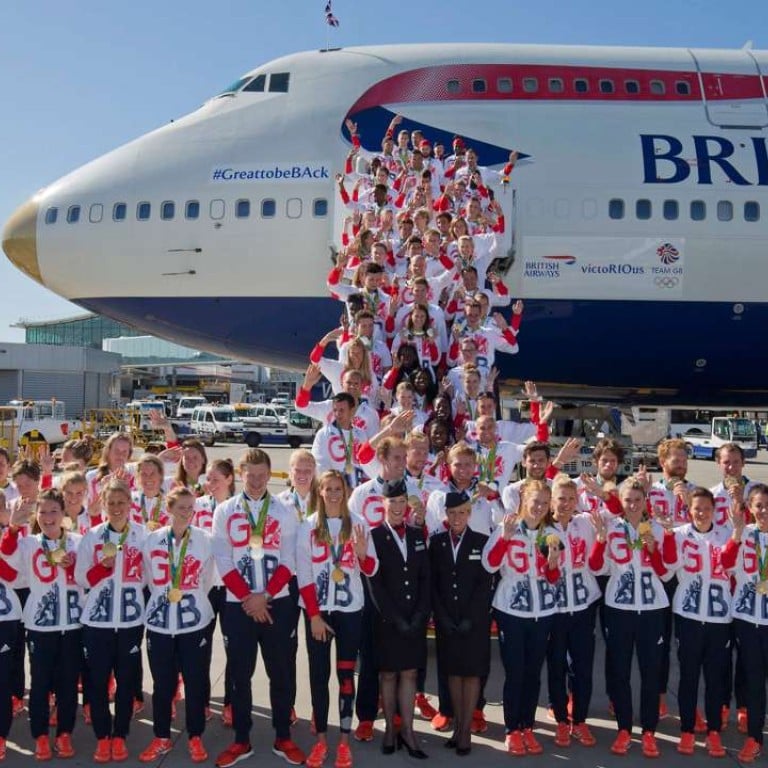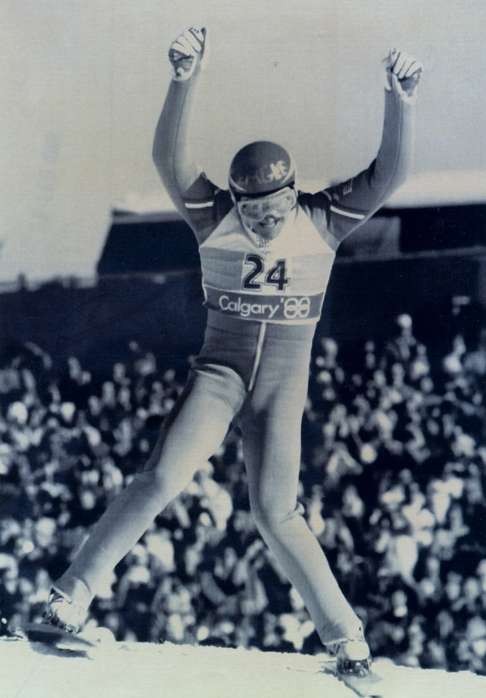
Success breeds success for Great Britain after investment pays off with historic Olympic Games medal haul in Rio de Janeiro
Hong Kong Football Association chief executive Mark Sutcliffe looks at how Great Britain went from Eddie “The Eagle” Edwards in 1988 to finishing above China’s in the medal table in Brazil
As a young child in the late 1960s and early 1970s I instinctively knew that sporting success was part of Great Britain’s heritage and culture. It was ingrained.
With, what in retrospect seems like arrogance, we believed we had ‘invented’ most sports and had a right to be good at them. Well, we had just won the football World Cup.
Millions of boys were just like me – we all wanted to be the next Bobby Moore, Bobby Charlton or in my brother’s case Geoffrey Boycott. But towards the end of the 1970s and into the 1980s there was a change of culture.
The liberal-minded people in charge of education decided that competition was bad, because not everyone was capable of winning. Winning was suddenly bad apparently.

In a short space of time, we went from world beaters to a nation of heroic failures, personified perfectly by ski-jumper ‘Eddie the Eagle’ in 1988. The slide was brought into sharp focus at the 1996 Atlanta Olympic Games when Great Britain finished 36th in the medal table, with just one gold and a mere nine medals in total.
Wind the clock forward 20 years to the Rio de Janeiro Olympics. Team GB finished second in the medals table ahead of China, and became the first country to increase the number of medals won having hosted the previous Games.
Great British blueprint continues to deliver success and Olympic Games medals after remarkable turnaround
This is a remarkable turnaround and has left many people around the world scratching their heads wondering – ‘how have they done it’?
Success in sport is not rocket science. I believe it only needs two things; cultural significance and resources.

It is absolutely clear the catalyst for the profound improvement and success of British sport has been the introduction of the National Lottery and the use of a set percentage of funds raised specifically for sport.
It has gone into building world class facilities, the hosting of major events, funding for governing bodies and to pay the training and competition expenses of individual athletes.
Long-term funding urged to deliver Olympic success for Hong Kong elite athletes
National Sports Associations (NSA) have been able to employ expert coaches and to fund the sports science support services that are so vital to athlete progression.
What hasn’t attracted as much attention as the impact of the National Lottery is that there has also been more investment in school sport.

Specialist sports colleges have been established, and importantly, links have been made between schools and local sports clubs. Pathways to NSA talent identification programmes have therefore been facilitated.
In terms of cultural significance, what is interesting is that the success of Team GB and elite sport has been achieved without a corresponding increase in mass participation.
In the club: Cyclist Jason Kenny unmoved by British star status after Olympic Games sprint triumph
Grass roots participation in sport has actually declined in many sports excluding cycling, even after 2012.
It just goes to show that there is no direct correlation between the absolute number of people playing sport at the base and the level of success at the top. The sports development continuum is not necessarily a pyramid, but more of a ladder.

The secret is identifying those with talent at a very early age, exposing them to the right sporting environment and providing them with the resources, time and expert advice they need to climb from one rung to the next. No stone unturned, no compromise.
So why is the cultural significance of sport so important? If the decision-makers are going to take sport seriously, they need to be confident that the majority of the population of a country appreciates that sport is important, even if most people have no aspiration to be world-class themselves.

The majority of people in the United Kingdom know they will never win the lottery or Olympic gold, but they are happy to buy a ticket in the knowledge that the proceeds will go to good causes.
A country needs politicians who understand the value of sport and are prepared to develop a strategy and divert resources to make it happen.
Success in sport needs to be part of a nation’s DNA like it used to be in the United Kingdom and like, thankfully it is once again. Success breeds success.
Mark Sutcliffe, is chief executive of the Hong Kong Football Association. Regular columnist James Porteous is on holiday

